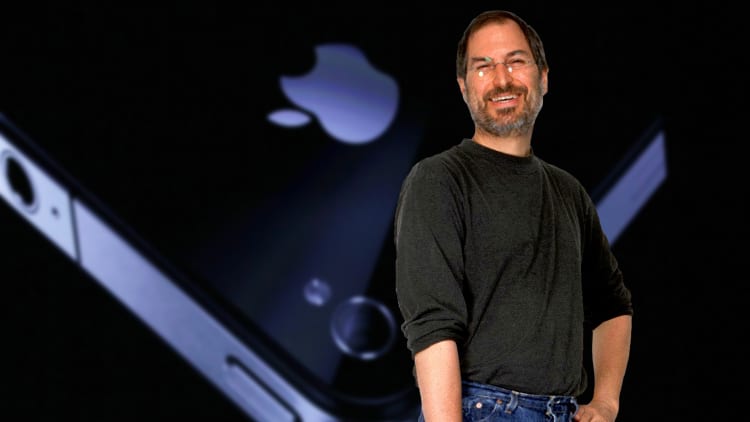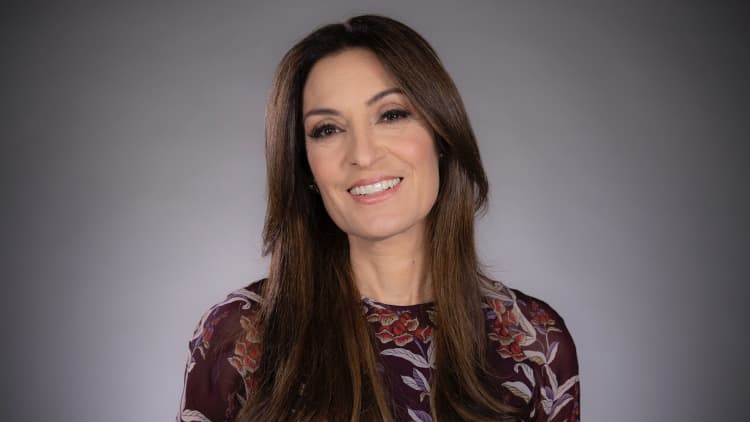Saying "I'm sorry," especially when you're not at fault, is an automatic reaction — and chances are you've probably said it a handful of times this week.
According to a 2015 poll from research firm YouGov, there are approximately 15 British "sorries" for every 10 American ones (for situations like if they sneezed, stood in someone's way or corrected someone who is wrong).
The survey, which polled 1,600 British people and 1,000 Americans, showed a few similarities: 73% of British people would apologize for interrupting someone, compared to the 71% of Americans. And when doing a favor for someone but getting it wrong, 60% of British people said they'd apologize, compared to the 58% of Americans.
Why (and when) you shouldn't say 'I'm sorry'
Over-apologizing for things you have little control over can make people think less of you.
A few examples of things you don't need to apologize for include sneezing, standing in someone's way (but you're both in a crowded space with little room to move), getting bumped into by someone else, being interrupted and so on. The list is endless.
Here's how it could backfire:
1. People lose respect for you.
In her book, "The Power of an Apology," psychotherapist Beverly Engel says over-apologizing isn't so different from over-complimenting: You may think you're displaying yourself as a nice and caring person, but you're actually sending the message that you lack confidence and are ineffectual.
"It can even give a certain kind of person permission to treat you poorly, or even abuse you," warns Engel.
2. It lessens the impact of future apologies.
Don't cry wolf. If you say "I'm sorry" for every little thing now, your apologies will carry less weight later on — for situations that really warrant a sincere apology.
3. It's annoying.
We've all been around someone who constantly apologizes. We understand they're only trying to be nice, but it can often feel exhausting and irritating at the same time.
A study published in the journal Frontiers of Psychology even found that saying "I'm sorry" when intentionally rejecting someone (i.e., cancelling plans, breaking up with someone) could cause the other person to "feel worse, or that they have to forgive the rejecter before they are ready," says Gili Freedman, one of the study's authors.
4. It can lower your self-esteem.
Choosing not to apologize may have psychological benefits, according to a study published in The European Journal of Social Psychology. Researchers found that participants who refused to express remorse showed signs of "greater self-esteem, increased feelings of power (or control) and integrity."

Monitoring your apologies
If you want to start apologizing less frequently, it will simply take lots of effort and practice. Here are a few ways to do it:
1. Be more self-aware.
The first step here is to assess your own behaviors and tendencies. Are you really someone who apologizes way too much? Knowing so will help you to carefully observe a situation before immediately blurting our the words "I'm sorry."
It may also help to keep a tally of how many times you apologize in a day and for what reasons.
2. Know what you should (and shouldn't) apologize for.
If you couldn't control the situation or it was a trivial (and honest) mistake, there's no need to apologize. But if you were really at fault, own up to it. Admitting you're wrong is never easy, but it can strengthen your relationships and show that have emotional intelligence.
3. Flip the script.
Flipping the script takes self-discipline, but over time, it'll begin to feel natural. If a colleague catches a spelling error in one of your emails, say, "Thank you for catching that." If you're in a crowded room and someone is impatiently trying to push their way through, say, "Here, let me get out of your way."
4. Get comfortable with saying "no."
Saying "no" can be awkward and uncomfortable for some, but it can be a very effective way to protect your time. If you're swamped at work and a colleague asks for help, you don't need to be sorry for not chipping in. If you can't make it to happy hour because you made plans prior to knowing, say, "I can't make it. Maybe next time!"
Whatever you say, be transparent. There's no need to go out of your way simply because you felt bad.
5. Download Google Chrome's Just Not Sorry plugin.
As you're composing an email, the Just Not Sorry plugin will notify you each time you use a word or phrase that undermine your message (i.e., "I'm sorry," "I'm no expert, but..."). You can also hover your mouse over the underlined words for a bite-sized explanation of how they might make people think less of you.
Saying 'sorry' isn't always bad
There are some circumstances in which a sincere apology can be beneficial.
As Juliana Breines, a professor of behavioral science at the University of Rhode Island, explained in a Psychology Today column, some types of apologies can encourage forgiveness, repair relationships and dissolve hostility. But they aren't easy to come by and require more than just saying "I'm sorry": the person apologizing must go the extra mile and express genuine remorse or offer to make amends.
"We are well-equipped with psychological defenses and self-serving biases to protect us from facing the possibility that we messed up. And it can be scary to make oneself vulnerable to the possibility of rejection — since an apology, no matter how heartfelt, does not always elicit forgiveness," Breines said.
John Hall is the co-founder and president of Calendar, a time management app, and the co-founder of Influence & Co., a content marketing agency. He is also the author of the best-selling book "Top of Mind."
Like this story? Subscribe to CNBC Make It on YouTube!
Don't miss:



